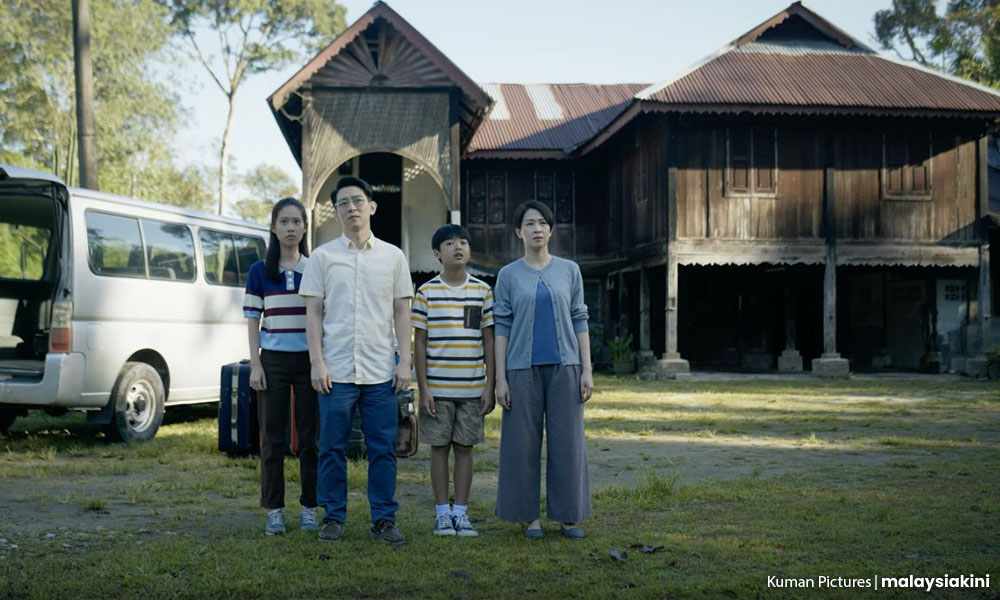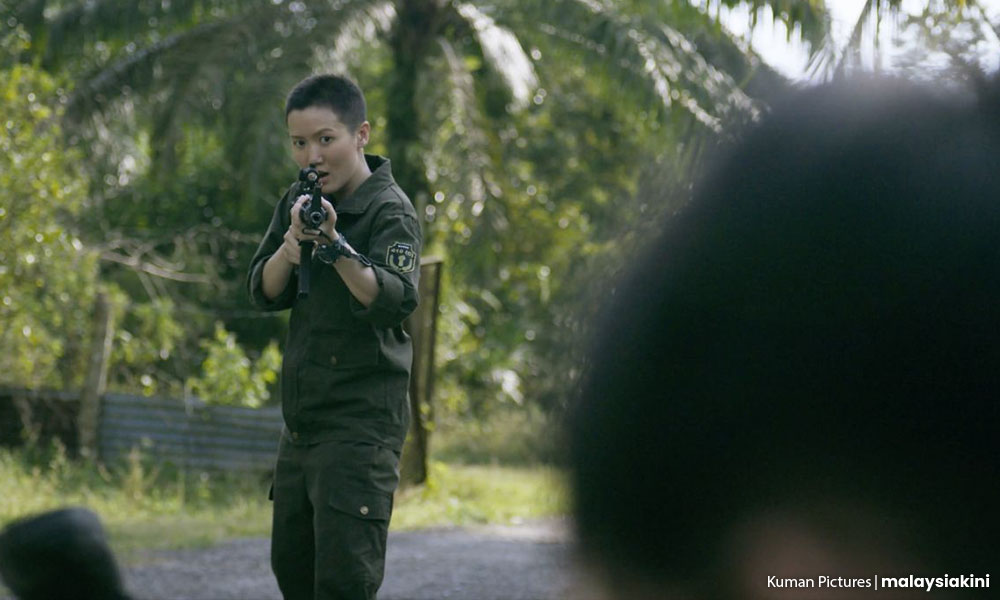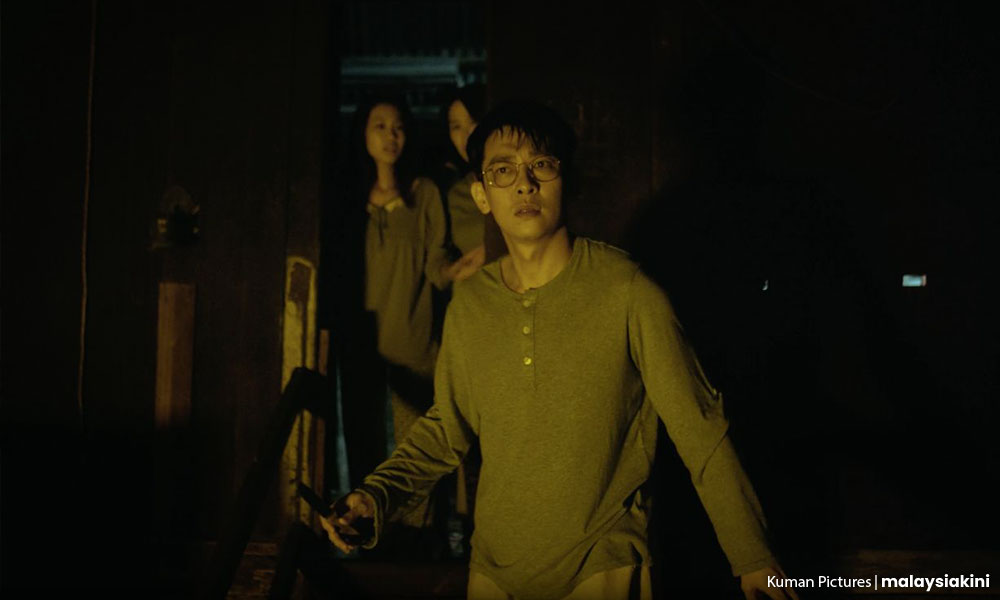LETTER | Like many Malaysians, the recent crowdfunded Malaysian film “Pendatang” has been one of the films on my “to-watch” list for the past few weeks.
Many comments about the film surround its bold exploration of the uncharted territories in Malaysia.
After finally watching it, I can see why it garnered close to one million views just within a few weeks from its premiere on YouTube.
It is a spectacular film with anti-racism and anti-authoritarianism themes, challenging the oppressive nature of racial segregation, police brutality and the lawlessness of those in power.
However, I also think it is not just a film that explores taboo themes in Malaysia. If we look more closely, “Pendatang” carries profound messages about our shared human nature that all Malaysians should hear.
Usually, we would not think of the Malays as “pendatang” (outsiders) in our country, as “pendatang” is a politically and racially charged term that is used to denote non-Malays.
However, the director’s move to reverse this role gets the audience thinking and questioning if all human beings are fundamentally the same when confronted with similar circumstances, that is, when encountering “pendatang” in our lives, familial relationships and country.
The presence of the “pendatang”, the Malay child named Panda in the Chinese household poses a threat to the family due to the strict prohibition of inter-ethnic interactions in a dystopian apartheid Malaysia governed by an Anti-Segregation Act.
The parents' disagreements on whether to hand over Panda to the authorities represent a fascinating interplay of human nature.
It demonstrates an interplay between our more primal, selfish, tribalist instincts, as exemplified by the father who initially insisted on surrendering Panda to the authorities (but later had a change of heart), and our more altruistic capacity for love, morality and reasoning, exemplified by the mother who insisted on teaching her children what is morally “right”.

On the one hand, our instinctive reaction, much like the father's, would be to surrender the child and prioritise the protection of the family. It is a natural response rooted in tribalism and Darwinian evolution. According to Group Selection theories, tribalism offers survival and reproductive benefits. Group living and cooperation allow better protection from predators and territorial defence and resource pooling.
Our innate tribalist instinct can be used to explain favouritism towards our own kin and race, as well as nationalist values and beliefs.
However, as we evolve, we also develop altruistic and reasoning capacities that lay the foundations for morality and our ultrasocial behaviours.
Ultra-sociality, defined as the ability to live in large social groups and cooperate and sympathise with those who are genetically unrelated to us, is an evolutionary success enabling the formation of multicultural societies.
In the animal kingdom, acts of reciprocity are often observed among various species, where direct returns of benefits occur.
Examples include vampire bats sharing blood meals with their neighbours, chimpanzees engaging in grooming behaviours, cleaner fishes providing cleaning services to larger fishes and hermit crabs forming alliances with sea anemones.
Humans, on the other hand, are capable of extending our acts of altruism to strangers through indirect reciprocity.
Kindness begets kindness
According to Richard D Alexander in his book “The Biology of Moral Systems”, indirect reciprocity is the biological foundation of morality and it happens where if someone helps you, you may help someone else who in turn, helps others without necessarily expecting a direct return.
While one may gain a favourable reputation from others in society for helping, humans are also capable of helping others purely out of goodwill and a commitment to doing what is morally right.
Just like what we observed in the film, where the mother is willing to pick up driving skills to deliver Panda back to safety, and later, the father is willing to risk his life to do the same.
This film shows that to be human involves being in a perpetual conflict between our more animalistic, tribalist self and our more evolved, rational and moral self.
At times, our tribalist tendencies prevail. We reserve opportunities to our own kind, as observed in instances where individuals ascend the career ladder through family connections and the persistence of race-based rental and employment practices that still pervade our country.
Similarly, in leadership and governance, tribalism and in-group favouritism manifest at various levels, from cronyism in businesses, corruption, bribery, to racially discriminatory legislations.

In extreme cases, as depicted in the dystopian world in the film, unchecked tribalist instincts could lead to totalitarianism and an apartheid system characterised by the complete dominance of a particular social group in power, and outright civil disturbances.
READ MORE: Local dystopian thriller 'Pendatang' hits YouTube Dec 21
A historical example of this was observed in South Africa from 1948 to the early 1990s, where racial segregation and the domination of minority whites were prevalent.
While it is unlikely that Malaysia will go to that extreme (I hope), it is crucial for us to play our part in keeping our tribalist tendencies in check.
The traits that set us apart from other species in the animal kingdom are our capacities to use autonomous reasoning to formulate and follow moral principles.
We no longer live in the wild where fierce competition and constant threats to our lives are the norm. As rational beings living in multicultural modern societies, we should treat each other as ends in themselves rather than as means to an end regardless of race, ethnicity and religion.
This allows respecting the fundamental rights and liberties of individuals who cohabit a country with us, as the first step to fostering social harmony and cooperation.
Beyond its anti-racism and anti-authoritarianism messages, the film serves as a reminder that being human involves a constant balancing act between our biologically ancient tendencies and rationality.

As we can see, the root of the problem lies not in other races, ethnicities, or religions, but in our unchecked selfish and tribalist instincts. These instincts, as depicted in the film, are not only a source of inter-group conflicts but also in-group conflicts.
The movie highlights those conflicts can arise irrespective of the presence of “others”, just as harmony can prevail in their existence.
As fellow Malaysians, to safeguard our nation’s future, it is as simple as heeding the director’s call - tribalism is outdated and the way forward lies in embracing ultra-sociality, altruism and multiculturalism.
Writer is the co-founder and managing director of Malaysian Philosophy Society.
The views expressed here are those of the author/contributor and do not necessarily represent the views of Malaysiakini.

